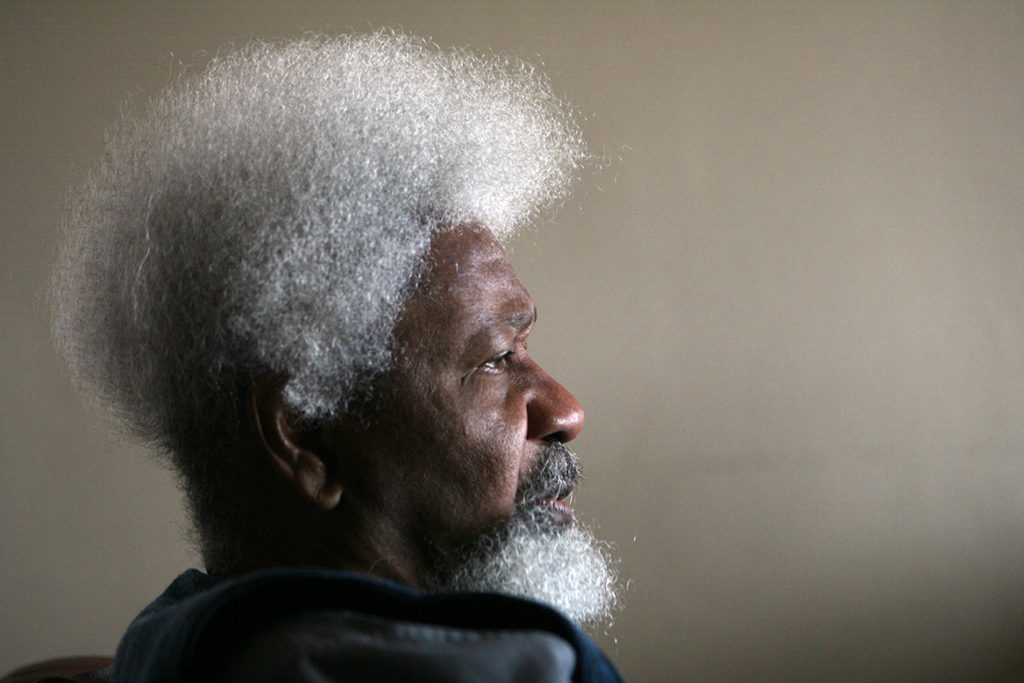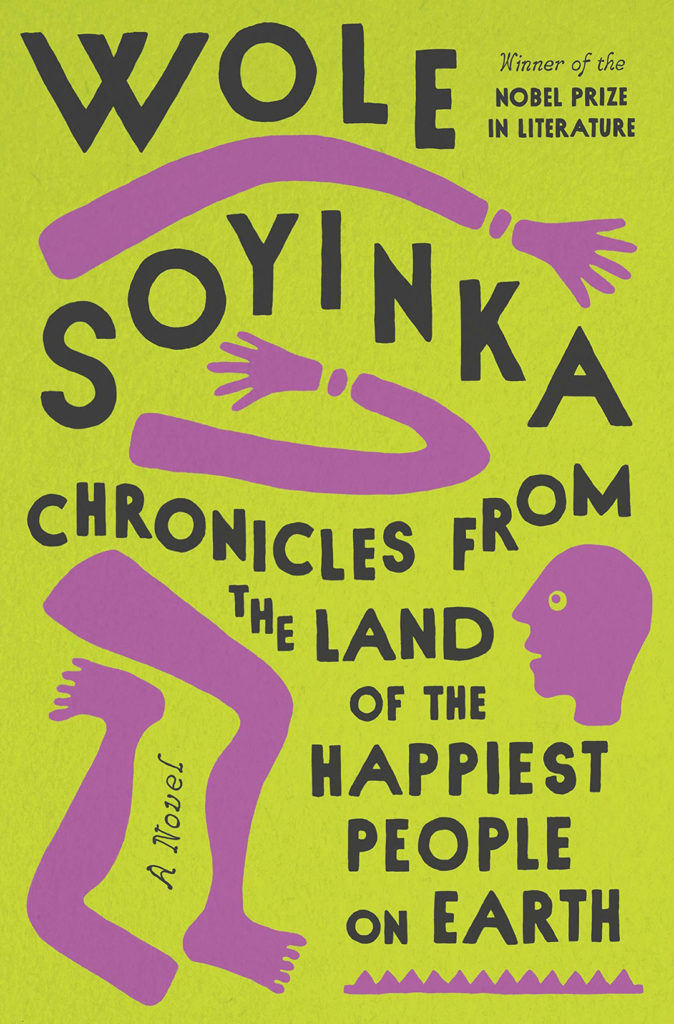Wole Soyinka, the President’s Marymount Professor in Residence, Emeritus at LMU, is Africa’s first Nobel Laureate in literature (1986) whose plays are likened to those of giants such as William Shakespeare. He is a man of many titles: humanist, voice of conscience for a generation, lifelong activist, champion of justice and democracy.
Soyinka is not a passive speculator in print or in life. Rather, he often jumps to influence current affairs in Nigeria, marrying his literary work to practical involvements. In the 1960s, his opposition to the Biafran Civil War resulted in his imprisonment in solitary confinement, without trial, for more than three years. Yet, prison walls did not stop him from writing protest poems with the only materials at hand — cigarette ash and toilet paper.

Soyinka is a man of many titles: humanist, voice of conscience for a generation, lifelong activist, champion of justice and democracy.
When the 1993 Nigerian presidential election brought General Sani Abacha to power, Soyinka called the new government Nigeria’s “worst and most brutal regime.” His activism earned him a privileged place on the government’s watchlist. His travel was restricted, and his passport confiscated. Soyinka escaped to Benin on a motorbike and began life in exile. In 1997, Abacha’s regime accused him of treason and sentenced him to death in absentia. It could not silence him otherwise.
Soyinka’s calls for a just world are not limited to Nigeria. He has been a vocal critic of Zimbabwe’s late President Robert Mugabe and Uganda’s President Yoweri Museveni. His response to the 2016 U.S. election of Donald Trump was cut from the same cloth. He told Oxford University students six days before the election that if Trump won the presidency he would destroy his American Green Card and leave the country, a promise he kept.
For those who have followed Soyinka, he is a living lesson in how to carry one’s nation in one’s head and heart, and, most of all, in how to be true to oneself. Neither the Nobel Prize nor prestigious teaching positions at Harvard, Yale and Oxford have affected how he sees himself. Accordingly, Soyinka remains the conscience of a continent and a voice of a nation.
Elias Wondimu is editorial and production manager of LMU’s Marymount Institute Press. He also is founder of Tsehai Publishers, which publishes books mostly about Ethiopian and African issues.
Soyinka’s Happy People
Among the most prolific of authors — 30 plays, eight poetry collections, 15 essay collections, short stories and more — Soyinka has written only his third novel and his first in almost five decades. “Chronicles From the Land of the Happiest People on Earth” is a wild, biting and hilarious romp, often Joycean in tone, through Nigeria’s politics and society. A murder mystery is at the heart of this sweeping, satirical novel, but also in the mix are corrupt political leaders, charismatic religious con artists and an underground body-parts market that exploits beliefs in the magical powers of human organs. But Soyinka’s “Chronicles” also is a depiction of ways that some of the worst aspects of an increasingly globalized culture seep into this “happy” African nation. While it is a challenging read, Soyinka’s latest work is one of the most perceptive, ambitious and humorous social critiques in contemporary African fiction.—The Editor

